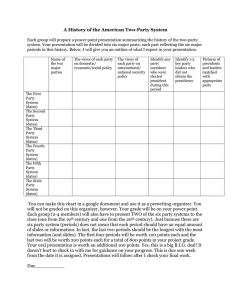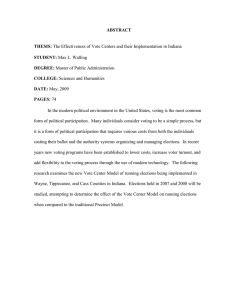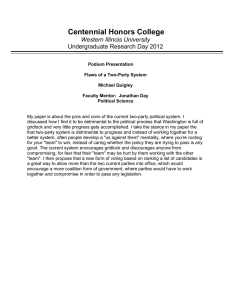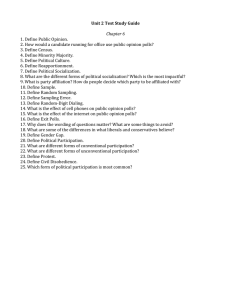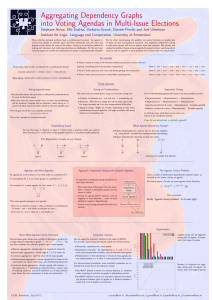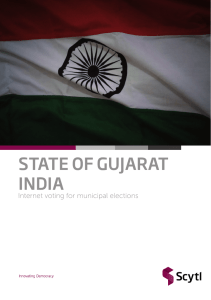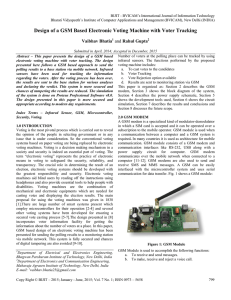R : P
advertisement
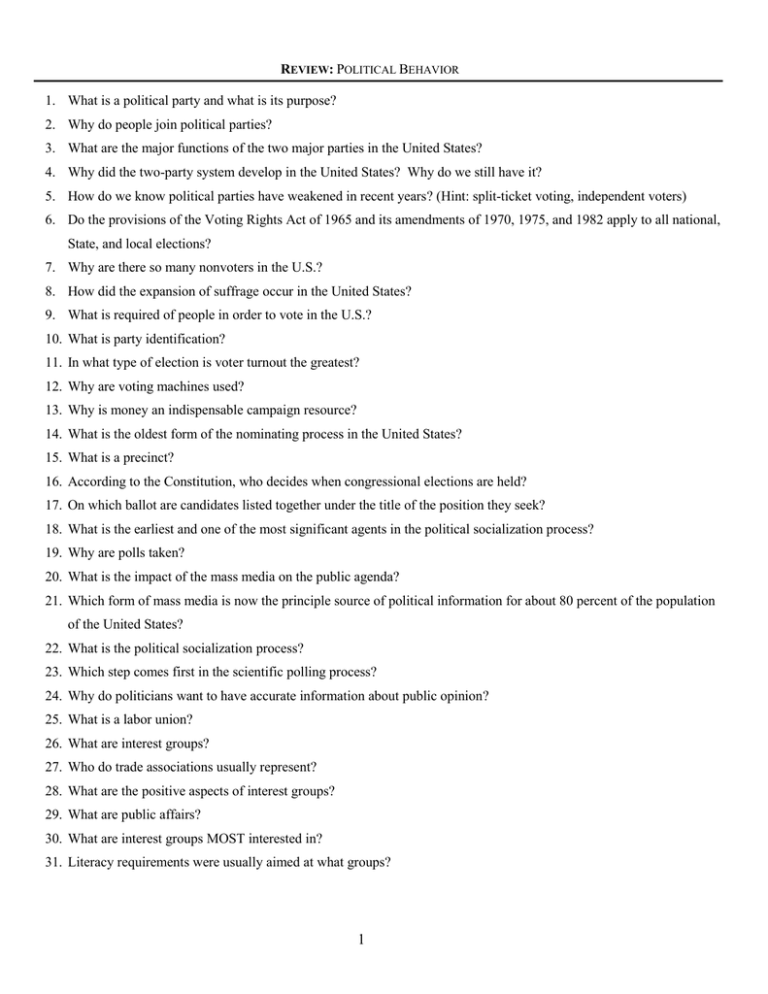
REVIEW: POLITICAL BEHAVIOR 1. What is a political party and what is its purpose? 2. Why do people join political parties? 3. What are the major functions of the two major parties in the United States? 4. Why did the two-party system develop in the United States? Why do we still have it? 5. How do we know political parties have weakened in recent years? (Hint: split-ticket voting, independent voters) 6. Do the provisions of the Voting Rights Act of 1965 and its amendments of 1970, 1975, and 1982 apply to all national, State, and local elections? 7. Why are there so many nonvoters in the U.S.? 8. How did the expansion of suffrage occur in the United States? 9. What is required of people in order to vote in the U.S.? 10. What is party identification? 11. In what type of election is voter turnout the greatest? 12. Why are voting machines used? 13. Why is money an indispensable campaign resource? 14. What is the oldest form of the nominating process in the United States? 15. What is a precinct? 16. According to the Constitution, who decides when congressional elections are held? 17. On which ballot are candidates listed together under the title of the position they seek? 18. What is the earliest and one of the most significant agents in the political socialization process? 19. Why are polls taken? 20. What is the impact of the mass media on the public agenda? 21. Which form of mass media is now the principle source of political information for about 80 percent of the population of the United States? 22. What is the political socialization process? 23. Which step comes first in the scientific polling process? 24. Why do politicians want to have accurate information about public opinion? 25. What is a labor union? 26. What are interest groups? 27. Who do trade associations usually represent? 28. What are the positive aspects of interest groups? 29. What are public affairs? 30. What are interest groups MOST interested in? 31. Literacy requirements were usually aimed at what groups? 1 32. Know the following terms: minor party independent political party splinter parties major parties public opinion poll interest group public opinion mass media franchise polling place sound bite two-party system partisanship bipartisan 33. In what ways does the existence of minor parties also work to strengthen the United States' two-party system? 34. Why is the issue of voter rights so important in the United States? 2
